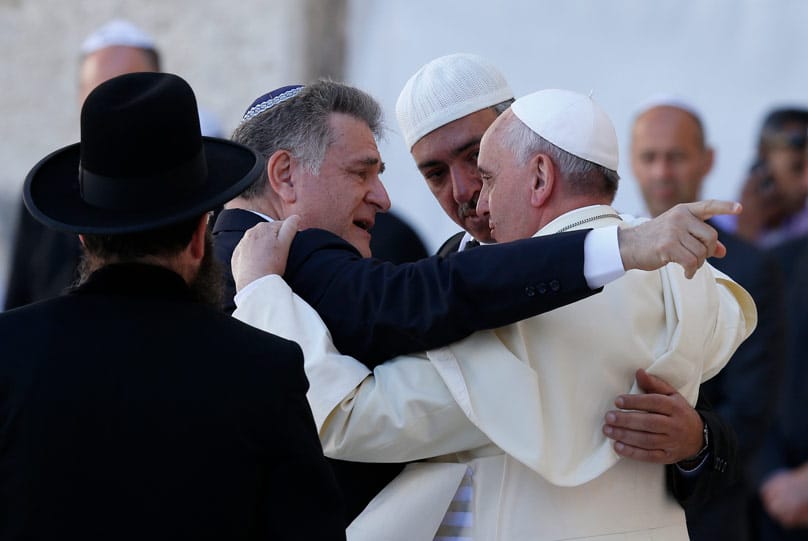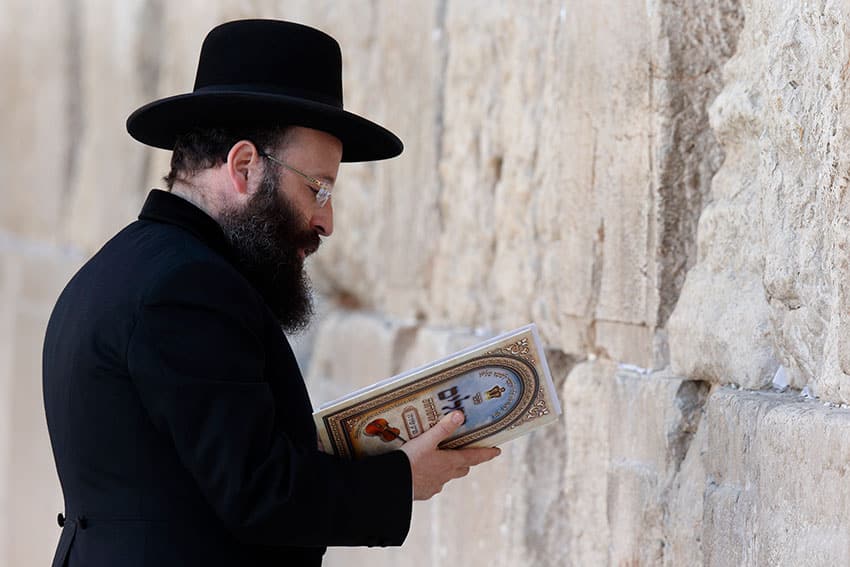
I work with a Jewish man who shows great interest in the Catholic faith, but at the same time feels attached to his Jewish heritage and all it means for him. Is there some way I can show him that becoming a Catholic still respects his Jewish heritage?
As I have written before in this column, one of the principal articles of Jewish belief is the expectation of the Messiah who is to come. It runs throughout the Old Testament Jewish scriptures. Today’s Jews are still awaiting the coming of the Messiah. But, as we Catholics and other Christians know, the Messiah has already come and he is Jesus Christ.
In view of this, a Jew who comes to believe that Jesus Christ is truly the Messiah is not abandoning his Jewish heritage but rather bringing it to fulfilment. The first Christians, including the apostles, were practically all Jews who believed that Jesus was the promised Messiah. And the preaching of the apostles, beginning with St Peter’s discourse on the day of Pentecost, was aimed at showing the Jews that the Old Testament prophecies were fulfilled by Jesus (cf. Acts 2:14-36; 3:12-26).
Roy Schoeman, in his book Salvation is from the Jews, shows how many contemporary, and older, Jewish converts to the Catholic faith saw their conversion precisely in this way. He quotes, for example, Rosalind Moss, a contemporary Jewish-Catholic evangelist, who says that becoming Catholic is “the most Jewish thing a person can do” (p. 323).
Cardinal Jean-Marie Lustiger, who was born into a family of Polish-Jewish immigrants, became a Catholic, was ordained a priest and later a bishop, and was Archbishop of Paris from 1981 to 2005, said: “I explained [to my father] that baptism would not make me abandon my Jewish condition – quite the contrary, it would lead me to find it, to receive the plenitude of its meaning. I did not have the feeling that I was betraying my heritage, or camouflaging myself or abandoning anything whatsoever. Just the opposite: I felt that I was going to find the import, the meaning of what I had received at birth” (Ibid., pp. 323-24).

Schoeman, himself a Jewish convert, writes: “This same perception, that a Jew in becoming Catholic is not changing his religion at all but rather coming into the fullness of its truth, is shared by virtually all Jews who have entered the Church. It is in fact the fundamental reason for Jewish conversion” (Ibid., p. 326).
One of the best known and most surprising conversions of Jews in recent times was that of Rabbi Israel Zolli, the former Chief Rabbi of Rome. Zolli was born in 1881 in Galacia, on the border between Poland and Austria, the youngest of five children of a wealthy, cultured Jewish family. His mother came from a line of over two centuries of learned Rabbis. Zolli pursued Jewish studies and at the age of only thirty-seven was made chief Rabbi of Trieste, one of the most important Jewish centres in Europe at the time.
He became Chief Rabbi of Rome in 1939, and when the Nazis took control of the city in 1943, he did all he could to protect the Jewish community. When at one point the Nazis demanded a ransom of fifty kilograms of gold to spare the Jews, and Zolli was fifteen kilograms short, he went to Pope Pius XII, who generously gave him the remainder.
Zolli’s conversion took place when he was celebrating Yom Kippur, the most solemn Jewish feast of Atonement, in Rome in 1944. During the ceremony he somehow saw Jesus Christ in a meadow and felt a great interior peace. He heard the words, “You are here for the last time”, to which he responded that so it should be. That evening, while at dinner, his wife said that during the ceremony she had seen Jesus blessing him. His daughter Miriam, who was in another room, called out and said she had been dreaming of Jesus. A few days later Zolli resigned his post and a few weeks later he was baptised in the Catholic Church. In gratitude for all Pope Pius XII had done during the war to save Jews, he took as his baptismal name the Pope’s name, Eugenio.
When he was asked why he had given up the Synagogue for the Church, Zolli replied, “But I have not given it up. Christianity is the integration, completion or crown of the Synagogue. For the Synagogue was a promise, and Christianity is the fulfilment of that promise” (p. 341).
